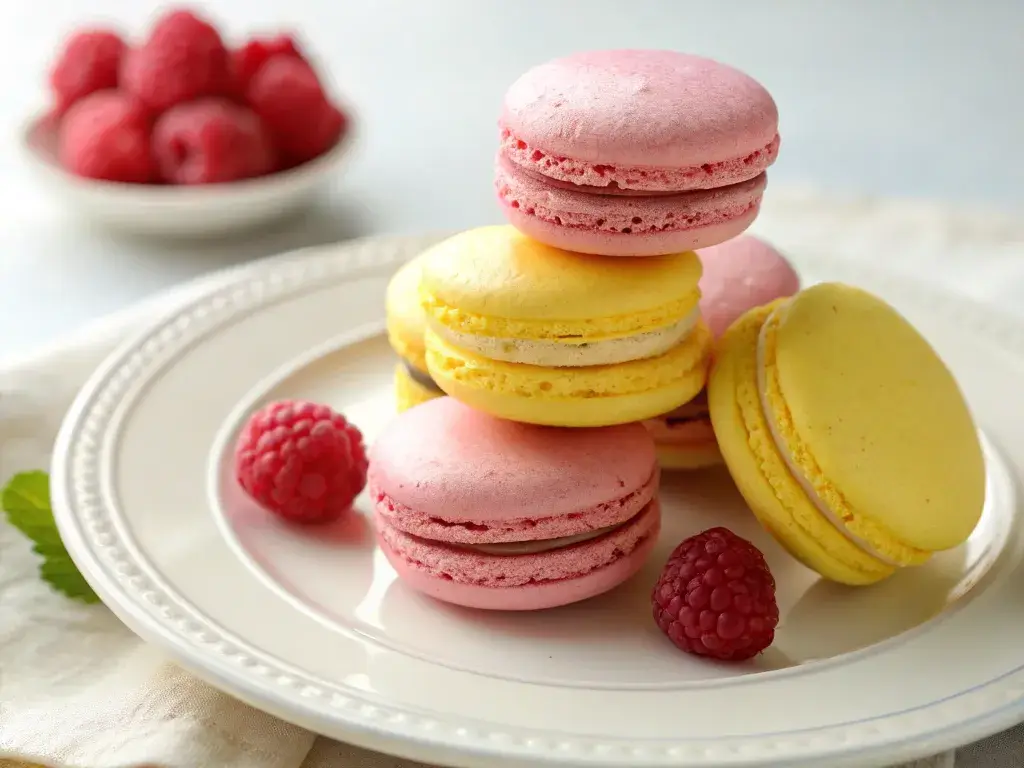Lemon and raspberry macarons are one of my absolute favorite gluten-free desserts. Light, crisp, tangy, and fruity all in one bite, they capture everything I love about baking with purpose. At Recipes of Kitchen, The Gluten-Free Sweet Kitchen, I’ve spent years reimagining classic desserts for those of us who need to bake without compromise.
When I first started developing gluten-free treats, I didn’t know if I could pull off delicate pastries. But with persistence, I found they’re not only possible they’re unforgettable.
This recipe is perfect for anyone craving bold flavor in a delicate, colorful shell. Whether you’re baking for a special occasion or just because, lemon and raspberry macarons will quickly become your go-to gluten-free indulgence.
Ingredients & Flavor Profile of Lemon and Raspberry Macarons
What Makes Lemon and Raspberry Macarons Unique?
Lemon and raspberry macarons are beloved for their bold contrast. The zesty lemon shells bring a bright, citrusy bite, while the raspberry filling offers a tart yet sweet punch that balances the flavors beautifully.
This flavor combo isn’t just pretty it’s deeply satisfying. The lemon cuts through the sweetness, and the raspberry gives it a fresh, fruity finish that lingers in the best way. That balance is what sets lemon and raspberry macarons apart from other macaron varieties.
Print
Lemon and Raspberry Macarons: A Bright & Bold Gluten-Free Delight
- Total Time: 1 hour
- Yield: 24 macarons 1x
Description
Delicate lemon-flavored macaron shells filled with a tangy dairy-free raspberry jam for a bright and fruity treat.
Ingredients
- 3/4 cup almond flour
- 1 cup powdered sugar
- 2 large egg whites, room temperature
- 1/4 cup granulated sugar
- 1/4 tsp cream of tartar (optional)
- 1 tsp lemon zest
- 1/2 tsp lemon extract or fresh lemon juice
- Yellow gel food coloring (optional)
- 1/3 cup raspberry jam (dairy-free)
Instructions
- 1. Line two baking sheets with parchment paper or silicone mats.
- 2. Sift almond flour and powdered sugar together into a bowl and discard any large bits.
- 3. In a clean mixing bowl, beat the egg whites until foamy. Add cream of tartar if using.
- 4. Gradually add granulated sugar while beating until stiff, glossy peaks form.
- 5. Mix in lemon extract, lemon zest, and yellow food coloring if desired.
- 6. Gently fold in the dry ingredients in batches. Mix until batter flows in thick ribbons.
- 7. Transfer the batter to a piping bag fitted with a round tip. Pipe uniform circles on baking sheets.
- 8. Tap trays on the counter to release air bubbles. Use a toothpick to pop visible bubbles.
- 9. Let macarons rest at room temperature for 30–60 minutes until they form a skin and are dry to the touch.
- 10. Preheat oven to 300°F (150°C). Bake one tray at a time for 14–16 minutes.
- 11. Allow macarons to cool completely before removing from the parchment.
- 12. Pair up similar shells and fill with a small dollop of raspberry jam. Sandwich gently.
- 13. Refrigerate for 24 hours before serving for best flavor and texture.
Notes
- Use finely ground almond flour and sift thoroughly for smooth shells.
- Avoid using too much lemon juice in the batter as it can affect texture—lemon extract is more stable.
- Raspberry jam should be thick to prevent runny filling.
- These macarons are dairy-free as long as your jam contains no dairy ingredients.
- Prep Time: 45 minutes
- Cook Time: 15 minutes
- Category: Dessert
- Method: Baking
- Cuisine: French
Nutrition
- Serving Size: 1 macaron
- Calories: 95
- Sugar: 12g
- Sodium: 5mg
- Fat: 3.5g
- Saturated Fat: 0.3g
- Unsaturated Fat: 3g
- Trans Fat: 0g
- Carbohydrates: 14g
- Fiber: 1g
- Protein: 2g
- Cholesterol: 0mg
Keywords: lemon raspberry macarons, dairy-free macarons, fruity macarons, French dessert
Core Ingredients You’ll Need
To make your own batch of lemon and raspberry macarons, you’ll need both shell ingredients and a filling:
| For Lemon Shells | |
|---|---|
| Almond flour | Fine texture is crucial |
| Powdered sugar | Sweetens and smooths batter |
| Egg whites | Builds structure (no yolks!) |
| Granulated sugar | Stabilizes the meringue |
| Lemon zest or extract | For authentic citrus flavor |
| Yellow food coloring (optional) | To enhance presentation |
| For Raspberry Filling | |
|---|---|
| Raspberry jam or puree | Tart base for the center |
| Cornstarch or pectin (optional) | Helps with thickening |
| Lemon juice | Adds brightness |
| Butter or vegan butter | Smooths the texture |
Depending on dietary needs, you can make lemon and raspberry macarons dairy-free by using vegan butter or skipping it altogether in a thick jam-style center.
Looking for a creative gluten-free companion? Pair your batch with our Dark Chocolate Granola for an elevated dessert board.
Can I Use Store-Bought Raspberry Jam to Fill These Macarons?
Answering: “Can I Use Store-Bought Raspberry Jam?”
Yes, you absolutely can use store-bought raspberry jam to fill your lemon and raspberry macarons. In fact, it’s one of the quickest and most accessible ways to create a tart, fruity center especially when you’re short on time.
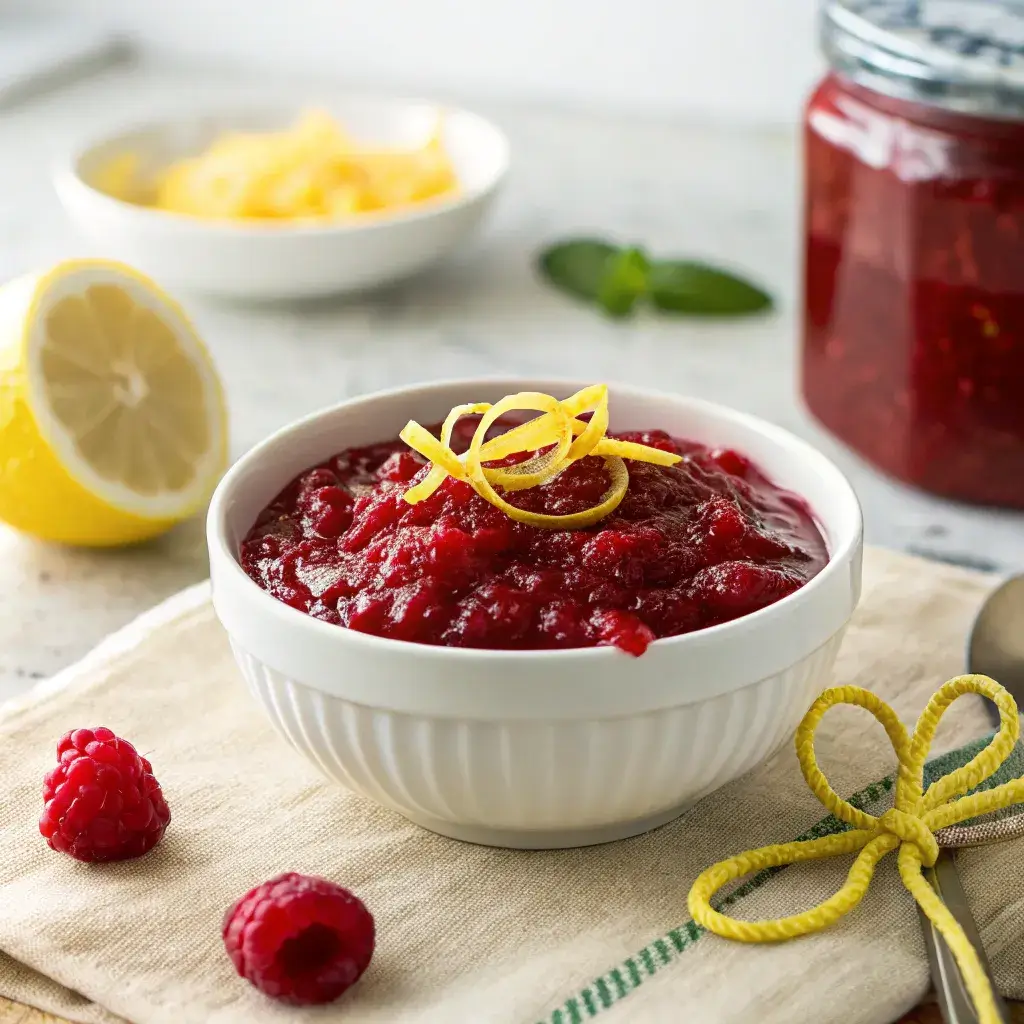
Make sure to choose a jam that’s:
- Seedless or strained, for a smooth texture
- Not overly runny, so it doesn’t ooze from the macaron shell
- High in real fruit content, not just sugar or syrup
If you’re making lemon and raspberry macarons for a dairy-free crowd, double-check that your jam is free from gelatin or dairy-based pectin.
Pro Tip: Improve Store-Bought Jam with a Few Tweaks
Even the best jarred jam can be upgraded:
| Add-In | Why It Helps |
|---|---|
| Lemon juice | Boosts brightness and flavor |
| Cornstarch (heated) | Thickens the jam for better hold |
| Unsalted butter | Adds richness (or vegan butter) |
| Fresh raspberries | Enhances color and tartness |
So yes, you can use raspberry jam but don’t be afraid to elevate it.
If you want your lemon and raspberry macarons to truly stand out, taking an extra five minutes to tweak the filling will make all the difference.
Need a dairy-free treat to go with these macarons? Don’t miss our Eggless Banana Chocolate Chip Muffins a reader favorite in our gluten-free kitchen.
Why Are Macarons So Difficult to Make?
The Truth Behind the Macaron Challenge
If you’ve ever tried to make lemon and raspberry macarons and ended up with cracked tops, hollow shells, or sticky bottoms, you’re not alone. Macarons have a reputation for being notoriously tricky and for good reason.
So, why are lemon and raspberry macarons so hard to get right?
It comes down to precision and technique. Unlike cookies that tolerate errors, macarons require:
- Exact measurements
- Perfect meringue consistency
- Gentle folding (the famous macaronage stage)
- Proper resting and baking temperatures
Each step affects structure, rise, and texture. A few extra whips of the meringue or an under-rested shell can turn a perfect recipe into a Pinterest fail.
What Makes Lemon and Raspberry Macarons Even More Sensitive
Adding ingredients like lemon zest or raspberry puree can add moisture, which risks flattening or cracking the shell. That’s why we use extracts or powdered flavorings in the shell and place the fruit flavor in the filling instead.
| Common Issue | Likely Cause |
|---|---|
| Cracked shells | Oven too hot or under-rested batter |
| Hollow shells | Overmixed meringue or underbaked |
| Sticky bottoms | Underbaked or poor drying surface |
| Lopsided macarons | Uneven piping or airflow |
Once you master the method, though, making lemon and raspberry macarons becomes a creative joy. It’s more like pastry art than baking and the results are worth every effort.
Want an easier gluten-free dessert for beginners? Try our Dark Chocolate Granola no whipping or folding required!
Can I Make Any Ingredient Substitutions to the Macaron Recipe?
Smart Swaps for Lemon and Raspberry Macarons
Baking lemon and raspberry macarons doesn’t have to be intimidating even if you need to swap ingredients. The key is knowing what can change without compromising structure.
Here are the most common ingredient substitutions that work:
| Original Ingredient | Suggested Swap | Why It Works |
|---|---|---|
| Almond flour | Sunflower seed flour | Nut-free alternative, similar texture |
| Granulated sugar | Coconut sugar (fine grind) | Lower glycemic option (may affect color) |
| Egg whites | Aquafaba (for vegan version) | Stable meringue alternative |
| Lemon extract | Fresh lemon zest or powder | Maintains flavor with less moisture |
| Butter (in filling) | Vegan butter or coconut oil | Keeps lemon and raspberry macarons dairy-free |
What Not to Substitute
Some ingredients, however, are non-negotiable. You can’t substitute:
- Powdered sugar: It’s critical for smooth shells
- Precise ratios: Macaron batter is sensitive
- Piping bags and resting time: Skipping these leads to chaos
So yes, you can substitute wisely but always follow the structure. That’s how your lemon and raspberry macarons stay bakery-quality, even with tweaks.
How to Store Lemon and Raspberry Macarons
Short-Term and Long-Term Storage Tips
You’ve baked the perfect lemon and raspberry macarons now how do you keep them crisp yet chewy?
Here’s a quick guide:
| Storage Method | Duration | Tips |
|---|---|---|
| Room Temperature | 1–2 days | Use airtight container; avoid humidity |
| Refrigerator | 4–5 days | Let them mature; flavors improve |
| Freezer (unfilled) | Up to 1 month | Freeze shells flat, thaw at room temp |
| Freezer (filled) | 2–3 weeks | Wrap well; best with butter-based filling |
Lemon and raspberry macarons taste better after 24 hours in the fridge as the shell and filling meld together. That’s why pros always “mature” them before serving.
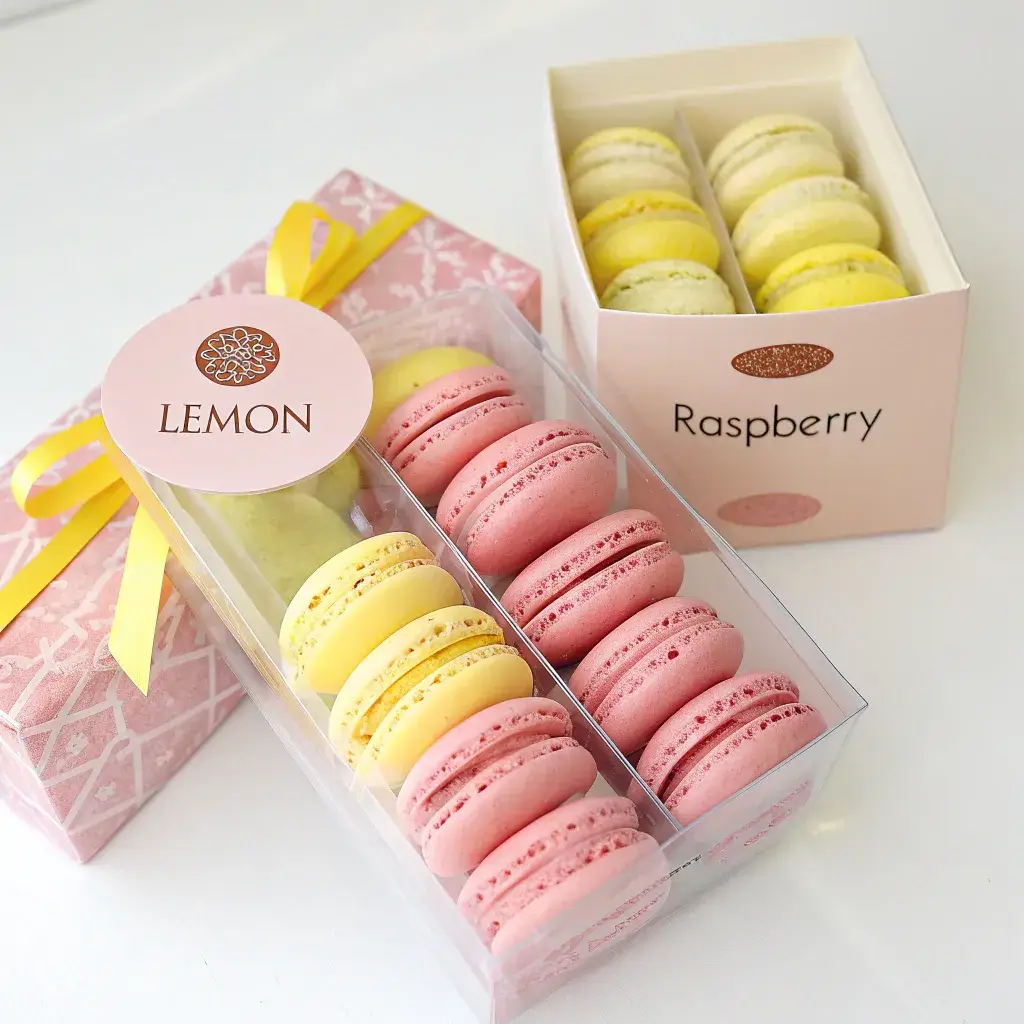
Can You Make Macarons Ahead of Time?
Yes! In fact, macarons are one of the few desserts that get better with time if stored correctly.
Just remember: moisture is the enemy. Keep them sealed and never refrigerate warm macarons, or condensation will ruin the texture.
Common Mistakes to Avoid with Lemon and Raspberry Macarons
Top 5 Mistakes (And How to Fix Them)
Even seasoned bakers struggle with lemon and raspberry macarons, especially with their bright citrus oils and tart fruit fillings. Let’s avoid the heartbreak by reviewing the most common errors.
| Mistake | Fix |
|---|---|
| Skipping shell rest | Always let piped batter sit 30+ minutes |
| Using wet lemon zest | Use zest sparingly; dry it if possible |
| Adding fruit puree to shells | Only flavor the filling, not the meringue |
| Overmixing macaronage | Fold until lava-like not runny |
| Underbaking shells | Watch for dry tops and lift from parchment |
Final Reminder: Trust the Process
Making lemon and raspberry macarons takes practice. If your first batch fails, that’s okay mine did too. The trick is learning what your kitchen, climate, and tools require.
Once you get the rhythm, this colorful combo will become your signature bake.
Looking for a no-fail gluten-free dessert to boost your confidence? Try Blueberry cheesecake smoothie
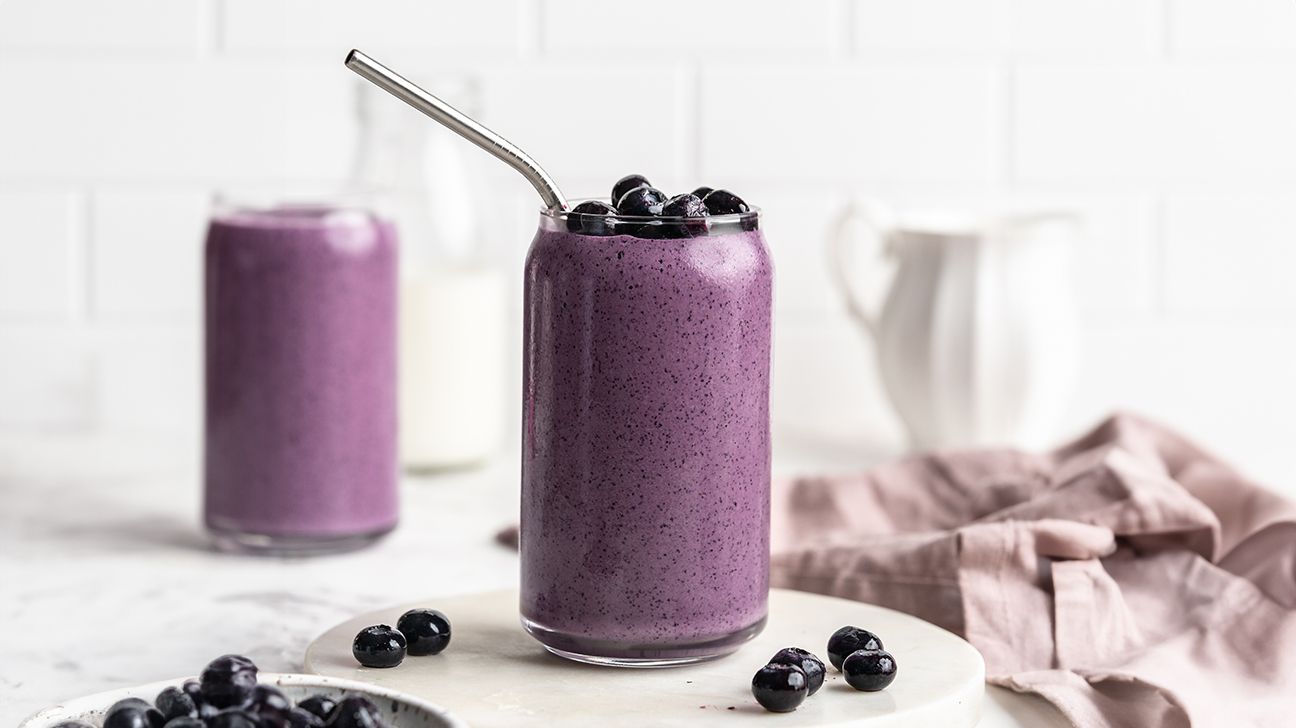
How to Pipe and Assemble Lemon and Raspberry Macarons
Get the Macaron Shell Just Right
Piping lemon and raspberry macarons evenly is one of the most important steps for achieving professional-looking results. Uneven shells or irregular sizing can ruin the signature sandwich look.
Follow these tips for success:
- Use a template under parchment or silicone mats
- Hold the piping bag at a 90° angle
- Pipe slowly and allow the batter to settle on its own
- Tap the tray to release air bubbles after piping
- Let them rest for at least 30 minutes to form a skin
By the time your piped shells go in the oven, they should be smooth and firm to the touch.
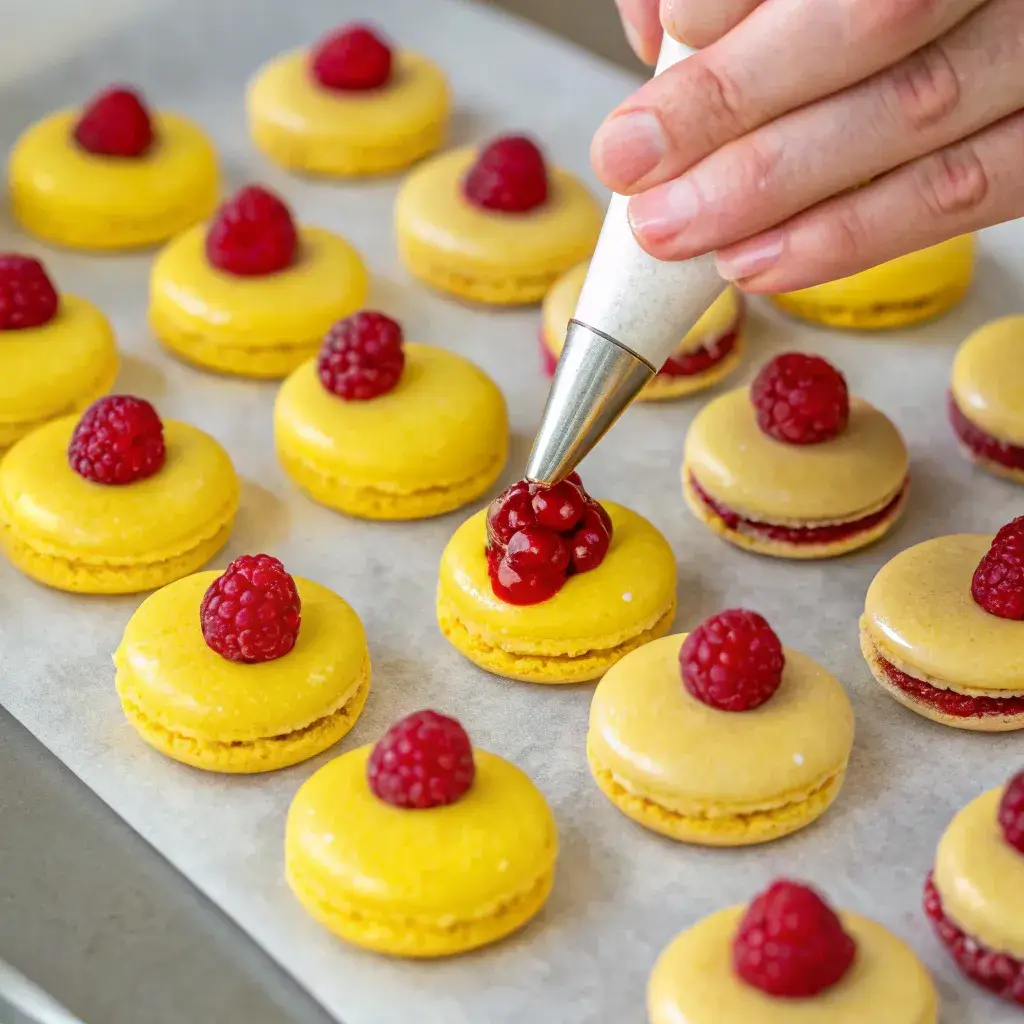
Filling with Raspberry Perfection
Once shells are baked and cooled, it’s time to fill them. For lemon and raspberry macarons, pipe raspberry filling onto the flat side of half the shells, then top with the remaining ones.
For extra visual impact:
- Add a thin layer of lemon curd in the center
- Sprinkle freeze-dried raspberry dust on top for color and tang
- Pipe with a star tip for bakery-style presentation
The contrast between the bright shell and bold fruit center makes lemon and raspberry macarons stunning both inside and out.
Serving Lemon and Raspberry Macarons Like a Pro
Presentation Tips for Maximum Wow Factor
Whether you’re serving lemon and raspberry macarons at a party, gift box, or dessert table, how you display them matters just as much as how they taste.
Here’s how to elevate your presentation:
| Style Idea | Why It Works |
|---|---|
| Stack in clear macaron towers | Shows off the colorful layers |
| Use mini cupcake liners | Prevents sticking, adds elegance |
| Add edible flowers or mint | Brings a fresh, sophisticated touch |
| Plate with fresh raspberries | Ties in the flavor theme visually |
You can also create macaron pairings with herbal teas, sparkling lemonade, or berry sorbet. Each pairing enhances the fruit-forward profile of lemon and raspberry macarons.
Great for Gifting or Events
These macarons aren’t just beautiful they’re shelf-stable (for a few days), portable, and ideal for gifting. Add a handwritten label with ingredients if giving to someone with allergies or dietary needs.
Final Tips for Mastering Lemon and Raspberry Macarons
Recap of Must-Know Tricks
Before you dive into your first batch of lemon and raspberry macarons, keep these golden rules in mind:
- Weigh your ingredients don’t eyeball
- Always sift almond flour and powdered sugar
- Don’t skip the shell rest it’s crucial
- Bake one tray at a time for even rise
- Let them mature overnight for best flavor and texture
When They Go Wrong Don’t Quit
Even seasoned bakers mess up lemon and raspberry macarons once in a while. It’s part of the journey. If your shells are cracked or hollow, take notes, tweak your technique, and try again.
FAQs About Lemon and Raspberry Macarons
Can I use store-bought raspberry jam to fill these macarons?
Yes! Store-bought raspberry jam works well in lemon and raspberry macarons, especially if it’s thick and seedless. For a smoother finish, try warming and straining it first. You can also mix it with a touch of lemon juice or vegan butter for balance.
Why are macarons so difficult to make?
Lemon and raspberry macarons, like all macarons, are sensitive to moisture, overmixing, and oven temps. Precision is key. Resting the shells, measuring accurately, and mastering meringue folding are crucial to success.
Can I make any ingredient substitutions to the macaron recipe?
Yes! For gluten or dairy allergies, substitute almond flour with sunflower seed flour, and swap butter for vegan butter. Just don’t replace powdered sugar or skip the resting phase—your lemon and raspberry macarons depend on them.
Lemon and Raspberry Macarons Are Worth It
So, are lemon and raspberry macarons difficult? Yes. Are they worth it? Absolutely. With their bright citrus shells and tangy berry filling, these macarons deliver bold flavor and stunning presentation.
Whether you bake for fun or for dietary reasons, you’ll love this gluten-free version. With a little patience and the right tips, anyone can master these delicate beauties and impress every guest who takes a bite.

